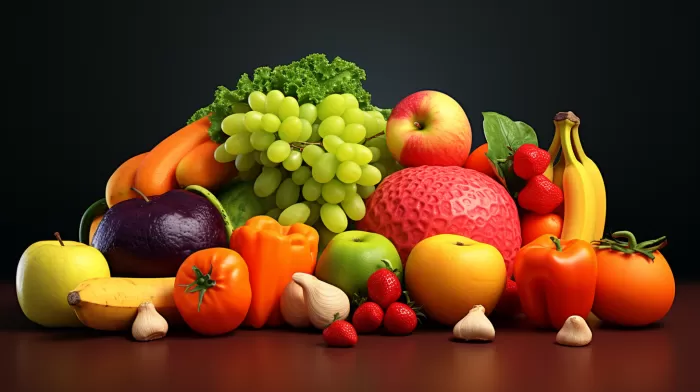Imagine a life where you’re unable to move, speak, swallow, or even breathe. That’s the reality for individuals suffering from amyotrophic lateral sclerosis (ALS), also called Lou Gehrig’s disease. This incurable, devastating condition is fatal when it stops you from breathing. But all hope is not lost! Researchers at Harvard have discovered that certain foods, rich in specific pigments called carotenoids, may hold the key to preventing or delaying the onset of ALS. Don’t wait; start stocking your pantry with these breath-saving foods today!
The Power of Carotenoids
Carotenoids are the pigments that give many fruits and vegetables their vibrant colors. They’re not just for show, though. Consuming these colorful pigments provide strong health benefits, including reduced risks of developing chronic and degenerative diseases such as ALS. So, what foods are rich in carotenoids? Keep reading to find out.
Carotenoid Champions: Foods You Should Be Eating
Looking to boost your carotenoid intake for the potential benefit of delaying or preventing ALS? Make sure to add these superfoods to your grocery list:
- Carrots: Not only do they help your eyesight, but the beta-carotene found in these orange root vegetables may also help protect against ALS.
-
Apricots: Delicious and juicy, these orange orbs are packed with carotenoids that could protect against this devastating disease.
-
Sweet potatoes: Both tasty and nutritious, sweet potatoes are a jack-of-all-trades. They come in varieties with different carotenoid content, so incorporate them into your daily meals.
-
Plums: This purple fruit is full of antioxidants, including carotenoids, that may provide some ALS protection. Refreshing and beneficial!
-
Watermelon: Hydrating and delicious, watermelon provides the ultimate summer snack. It’s also rich in carotenoids that can keep you breathing easier.
Now that you know the foods to stock up on, let’s explore the link between carotenoids, ALS, and how these colorful pigments help our bodies.
Carotenoids: The Link Between Diet and ALS
Through their research, the scientists at Harvard discovered a strong correlation between carotenoid consumption and lower risk of developing ALS. They found that people who consume the most carotenoids are the least likely to develop the disease. But why?
Carotenoids are potent antioxidants, which means they can serve as a natural defense mechanism against damage caused by free radicals. Free radicals, which are molecules with unpaired electrons, can initiate a chain reaction within the body that eventually leads to cellular damage and dysfunction. By consuming more antioxidants like carotenoids, you’re effectively neutralizing these harmful free radicals and protecting your body from potential damage.
Moreover, subjects in the study with diets high in beta-carotene and lutein — found in dark green vegetables — have a lower ALS risk. These two specific carotenoids may provide enhanced protection against the disease, making them essential additions to your diet.
But not all carotenoids have the same protective effect.
The Underperforming Carotenoids and Vitamin C
The Harvard researchers found that certain carotenoids, specifically lycopene and beta-cryptoxanthin, do not reduce the risk of ALS. Additionally, vitamin C showed no impact on preventing the condition in this study. While they may have other health benefits, it appears they do not provide the same protective effect against ALS as carotenoids like beta-carotene and lutein.
Carotenoids: The Bigger Picture
According to researcher Alberto Ascherio, “ALS is a devastating degenerative disease that generally develops between the ages of 40 and 70 and affects more men than women.” Understanding the impact of diet on ALS development isn’t just a matter of curiosity; it’s vital to the health and well-being of many individuals worldwide.
The Harvard study has taken a significant step by examining the role of dietary antioxidants, like carotenoids, in preventing ALS. While more research may be needed, incorporating these antioxidants into your diet is a small and enjoyable change that could have significant benefits for your health.
By embracing a diet rich in carotenoids, you’re not only taking steps to potentially delay or prevent ALS but also supporting your overall health. After all, a colorful plate is key to a healthier life!



